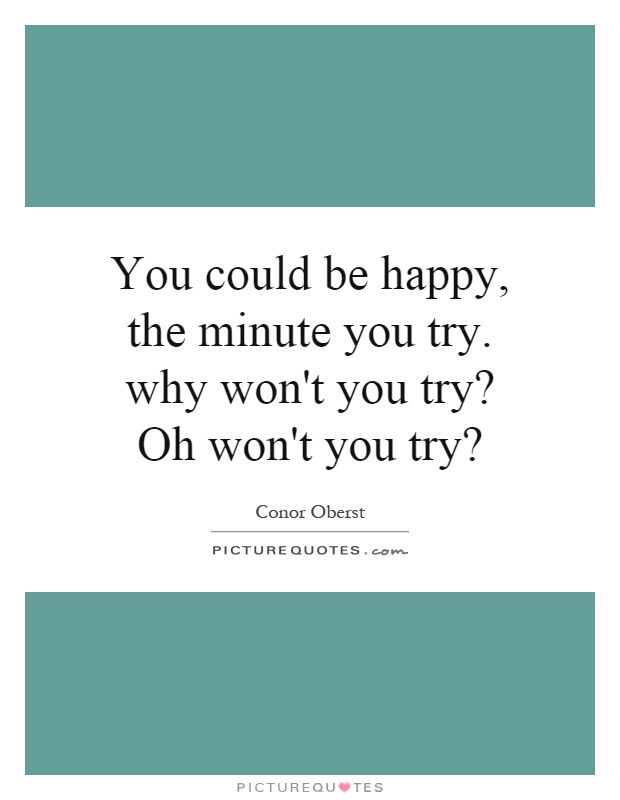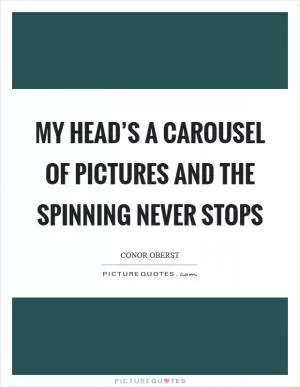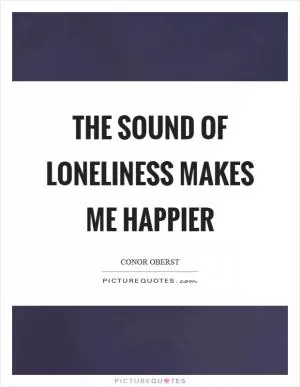You could be happy, the minute you try. why won't you try? Oh won't you try?

You could be happy, the minute you try. why won't you try? Oh won't you try?
Conor Oberst, the talented singer-songwriter known for his introspective and emotionally charged lyrics, often explores themes of love, loss, and self-discovery in his music. One of his most poignant and thought-provoking songs is "First Day of My Life," in which he sings the lines, "You could be happy, the minute you try. Why won't you try? Oh, won't you try?"These lyrics encapsulate the idea that happiness is within reach if we are willing to make an effort to pursue it. Oberst's earnest plea for the listener to try to be happy speaks to the universal struggle of finding contentment and fulfillment in life. The simplicity of the message is powerful in its directness, urging us to take action and make a conscious choice to seek happiness.
In the context of Conor Oberst's own life and career, these lyrics take on added significance. Oberst has been open about his struggles with mental health issues and substance abuse, and his music often reflects his personal battles with depression and anxiety. Despite these challenges, Oberst continues to create music that resonates with listeners and offers a sense of catharsis and connection.
The line "You could be happy, the minute you try" suggests that happiness is not an unattainable goal, but rather a choice that we can make in any moment. It is a reminder that we have the power to shape our own happiness and that it is up to us to take the necessary steps to cultivate a sense of well-being and fulfillment.
Oberst's plea to "try" is a call to action, a challenge to break free from self-imposed limitations and embrace the possibility of happiness. It is a reminder that change is possible and that we have the agency to create a more positive and fulfilling life for ourselves.












 Friendship Quotes
Friendship Quotes Love Quotes
Love Quotes Life Quotes
Life Quotes Funny Quotes
Funny Quotes Motivational Quotes
Motivational Quotes Inspirational Quotes
Inspirational Quotes